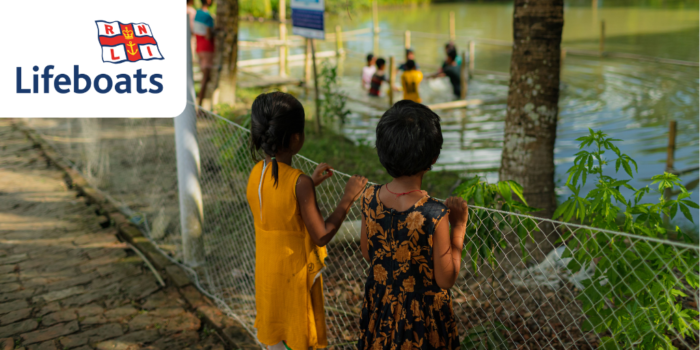
Photo: Saed Nyem
About the RNLI and INTRAC’s work
The Royal National Lifeboat Institution (RNLI) is a UK and Ireland charity which saves lives at sea around the coasts of the United Kingdom, the Republic of Ireland, the Channel Islands, and the Isle of Man. Additionally, the RNLI has a small international team. This has been in operation for around ten years and undertakes advocacy work and training in lifesaving and drowning prevention. This work is done in partnership with a number of international partner organisations.
In 2023, INTRAC was commissioned to support the international work of the RNLI. This consultancy project had two components:
- A monitoring, evaluation, and learning (MEL) component in which INTRAC assessed the partnership approaches used by the RNLI’s international team;
- An organisational development (OD) component in which INTRAC provided guidance on how to improve these approaches.
Assessing RNLI partnership approaches
This work was led by Lucy Gray and supported by Kate Newman. Initially, Lucy and Kate assessed both past RNLI partnerships, and those that are ongoing. This was done through a series of interviews and meetings with staff of both the RNLI and its partner organisations. Through these, INTRAC gathered feedback on the nature and experience of partnership working.
Identifying good practice and next steps
Partners’ feedback provided critical insights and lessons into how RNLI international staff can manage relationships with partners in the future. This feedback was shared with RNLI staff at a sensemaking workshop, and informed discussions around an emerging set of partnership principles and behaviours.
Drawing on the work of the Partnership Brokers Association, Lucy and Kate developed tailored guidance – the RNLI International Partnership Management Guidance document – to help RNLI think through its approach to current and future partnerships. This resource sets out principles for partnership working and partnership ‘behaviours’; presents a partnership management cycle framework; and provides detailed guidance – through prompting questions, points to consider and common challenges – on how to manage each stage of a partnership. It also serves to signpost to additional resources.